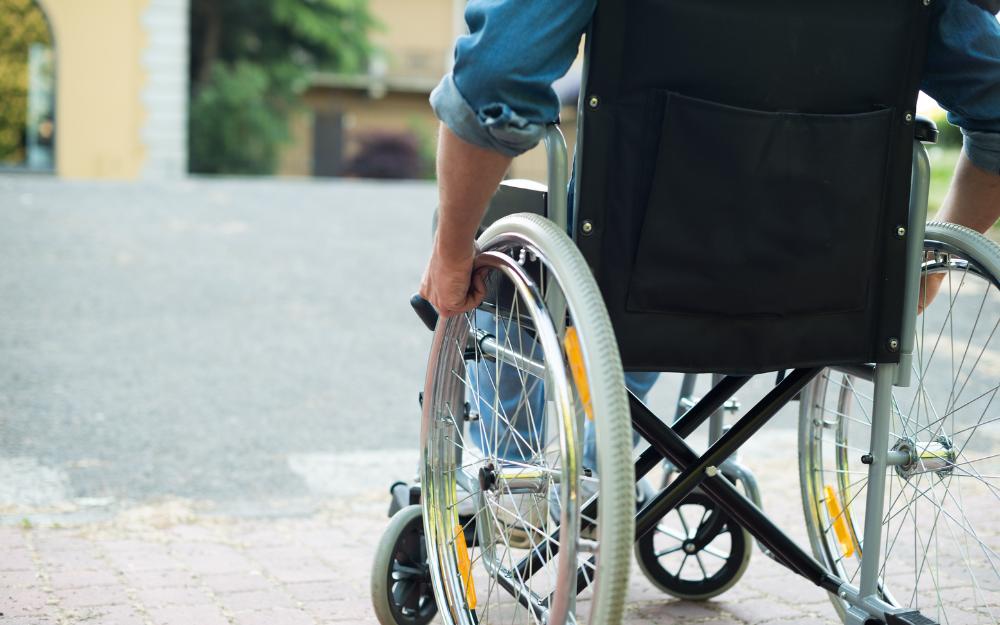Head and brain injuries can profoundly alter lives, leaving lasting impacts on both victims and their families. To aid their recovery, individuals who have suffered such injuries due to another party’s negligence may be entitled to compensation in NSW. This article aims to provide a thorough overview of head and brain injury compensation claims in NSW, including the legal framework, claim process, and factors affecting compensation.
If you or a loved one suffers from a head and brain injury that was not your fault, don’t hesitate to consult with one of our expert Personal Injury Lawyers Parramatta and Personal Injury Lawyers Cabramatta today. We offer a free, no-obligation initial consultation to help you start your claim for the compensation you deserve.
Understanding Head and Brain Injuries
These injuries can range from mild concussions to severe traumatic brain injuries (TBIs), each with varying degrees of impact on an individual’s life.
According to the Australian Institute of Health and Welfare (AIHW), common causes of head and brain injuries include:
- Motor vehicle accidents (31%)
- Falls (39%)
- Workplace incidents
- Sports-related accidents
- Assaults (12%)
Types of Head and Brain Injuries
- Penetrating Traumatic Brain Injury (TBI): Severe damage from objects piercing the skull, often resulting in enduring cognitive, physical, and emotional impairments.
- Haemorrhages: Internal bleeding within the brain that can result in serious, long-lasting effects.
- Hypoxic brain injury: Caused by a reduction or complete lack of oxygen reaching the brain.
- Fractured skull: May require surgical intervention and extensive medical care.
- Haematomas: Blood clots forming in various areas around the brain.
- Contusions: Internal bruising and swelling caused by impacts to the head.
- Concussions: Soft tissue injuries affecting the brain, typically healing within two weeks but potentially leading to ongoing issues.
- Facial and head injuries: Often minor cuts or lacerations that can become severe if complications like infections arise.
The effects of these injuries can be wide-ranging, potentially impacting cognitive function, physical abilities, emotional regulation, and overall quality of life. Common symptoms include headaches, neck pain, confusion, reduced concentration, memory difficulties, nausea, irritability, dizziness, balance problems, and sensitivity to light or noise.
Legal Framework for Compensation Claims in NSW
In New South Wales, various laws regulate the compensation claims process for head and brain injuries. The primary laws include:
- Motor Accident Injuries Act 2017 (for motor vehicle accidents)
- Workers Compensation Act 1987 (for workplace injuries)
- Civil Liability Act 2002 (for public liability and medical negligence cases)
These laws establish the grounds for claiming compensation and outline the procedures that must be followed. However, it’s important to note that the specific legislation applicable to a case depends on the circumstances of the injury.
Types of Compensation Claims
Depending on the cause and context of the injury, head and brain injury victims in NSW may pursue different types of compensation claims:
- Compulsory Third Party (CTP) Claims: For injuries sustained in motor vehicle accidents. The NSW CTP scheme divides injuries into two categories: threshold (minor) injuries, and non-threshold (serious) injuries.
- Workers Compensation Claims: For injuries occurring in the course of employment.
- Public Liability Claims: For injuries in public places or on private property due to negligence.
- Medical Negligence Claims: For injuries resulting from substandard medical care.
Each type of claim has its own set of procedures and time limits, making it essential to get legal advice from one of our expert Personal Injury Lawyers promptly after sustaining an injury.
The Compensation Claim Process
While the specific steps may vary depending on the type of claim, the general process for seeking compensation for a head or brain injury in NSW typically involves the following stages:
- Seeking medical attention: This is crucial not only for health reasons but also to establish a medical record of the injury. For mild traumatic brain injury (MTBI) or concussion, it’s strongly recommended to visit a local doctor as soon as possible to monitor and manage any ongoing symptoms.
- Reporting the incident: Whether it’s to the police (for motor vehicle accidents), employer (for workplace injuries), or property owner (for public liability cases).
- Gathering evidence: This includes medical reports, witness statements, and any other relevant documentation.
- Lodging a claim: This must be done within the prescribed time limits, which vary depending on the type of claim.
- Assessment of the claim: The relevant insurer or authority will assess the claim and may require additional medical examinations. For CTP claims, a neuropsychological assessment may be required for diagnosis and treatment planning.
- Negotiation or Mediation: Many claims are resolved through negotiation between the parties.
- Court Proceedings: If a settlement cannot be reached, the matter may proceed to court.
Throughout this process, it’s advisable to have guidance from our experienced Personal Injury Lawyers to ensure your rights are protected and to maximise your chances of a fair outcome.
Factors Affecting Compensation
Remember, circumstances vary. Thus, the amount of compensation awarded for a head or brain injury can vary significantly based on several factors:
- Severity of the injury: More severe injuries typically result in higher compensation amounts.
- Impact on quality of life: This includes physical limitations, cognitive impairments, and emotional distress.
- Economic loss: Both past and future loss of earnings are considered.
- Medical and care expenses: Current and anticipated future medical costs are factored in.
- Age of the victim: Younger victims may receive higher compensation due to longer-term impacts.
- Degree of negligence: In some cases, the level of fault attributed to the responsible party can affect the compensation amount.
Types of Compensation Available
The compensation that head and brain injury victims may be entitled to include:
- Pain and Suffering: Compensation for physical and emotional distress.
- Financial Losses: Covers lost wages.
- Future Earnings: Addresses potential long-term income reduction.
- Domestic and Personal Assistance: Helps with costs of domestic and personal care
- Medical Expenses: Covers past and future health care costs.
- Travel Costs: Reimburses injury-related transportation expenses.
Time Limits for Making a Claim
In NSW, strict time limits apply to compensation claims. These limits vary depending on the type of claim:
- CTP Claims: Must be made within 3 months of the accident, or within 28 days if claiming income support.
- Workers Compensation Claims: Should be made as soon as possible, but generally within 6 months of the injury.
- Public Liability Claims: Must be lodged within 3 years of the injury date.
- Medical Negligence Claims: Usually within 3 years from the date the negligence was discovered.
The Importance of Expert Medical Evidence
In head and brain injury cases, expert medical evidence plays a crucial role. This evidence helps to:
- Establish the seriousness of the harm and its overall impact;
- Determine the long-term prognosis;
- Assess the impact on the victim’s life and work capacity; and
- Estimate future medical and care needs
Moreover, expert medical reports from neurologists, neuropsychologists, and other specialists are often required to support a claim. These evaluations offer a detailed picture of the injury’s effects, crucial for ensuring you receive appropriate compensation.
Challenges in Head and Brain Injury Claims
Head and brain injury claims can be particularly complex due to several factors:
- Invisible symptoms: Many effects of brain injuries, such as cognitive impairments or personality changes, may not be immediately apparent.
- Long-term consequences: The full impact of a brain injury may not become evident for months or even years after the incident.
- Variability of symptoms: Brain injury symptoms can fluctuate over time, making assessment challenging.
- Proving causation: In some cases, it can be difficult to definitively link certain symptoms to the injury event.
- Pre-existing conditions: If the victim had pre-existing mental health or neurological conditions, it can complicate the assessment process.
The Role of Rehabilitation in Compensation Claims
In NSW, the principle of mitigation of loss applies, meaning that claimants are expected to take reasonable steps to minimise the impact of their injury. Nonetheless, insurers may fund rehabilitation as part of the claims process, recognising its importance in achieving the best possible outcome for the injured person. Engaging in appropriate rehabilitation can:
- Improve the victim’s recovery outcomes;
- Demonstrate commitment to recovery, which can positively influence the claim; and
- Provide valuable evidence of the injury’s impacts and ongoing needs.
Conclusion
Head and brain injury compensation claims in NSW are complex but essential for those affected by another’s negligence. These claims offer financial support for medical treatment, ongoing care, and lost income. Each case is unique, and outcomes depend on individual circumstances, making it important to seek medical attention and consult with an experienced compensation lawyer, such as ours at Gajic Lawyers. With our guidance, securing the compensation you need for recovery is possible.
If you or a loved one is suffering from a head or brain injury, talk to one of our expert Personal Injury Lawyers Cabramatta and Personal Injury Lawyers Parramatta today. We understand the emotional and physical challenges you’re facing, and we’re here to support you every step of the way.








